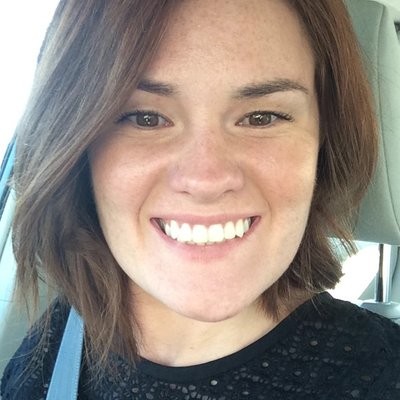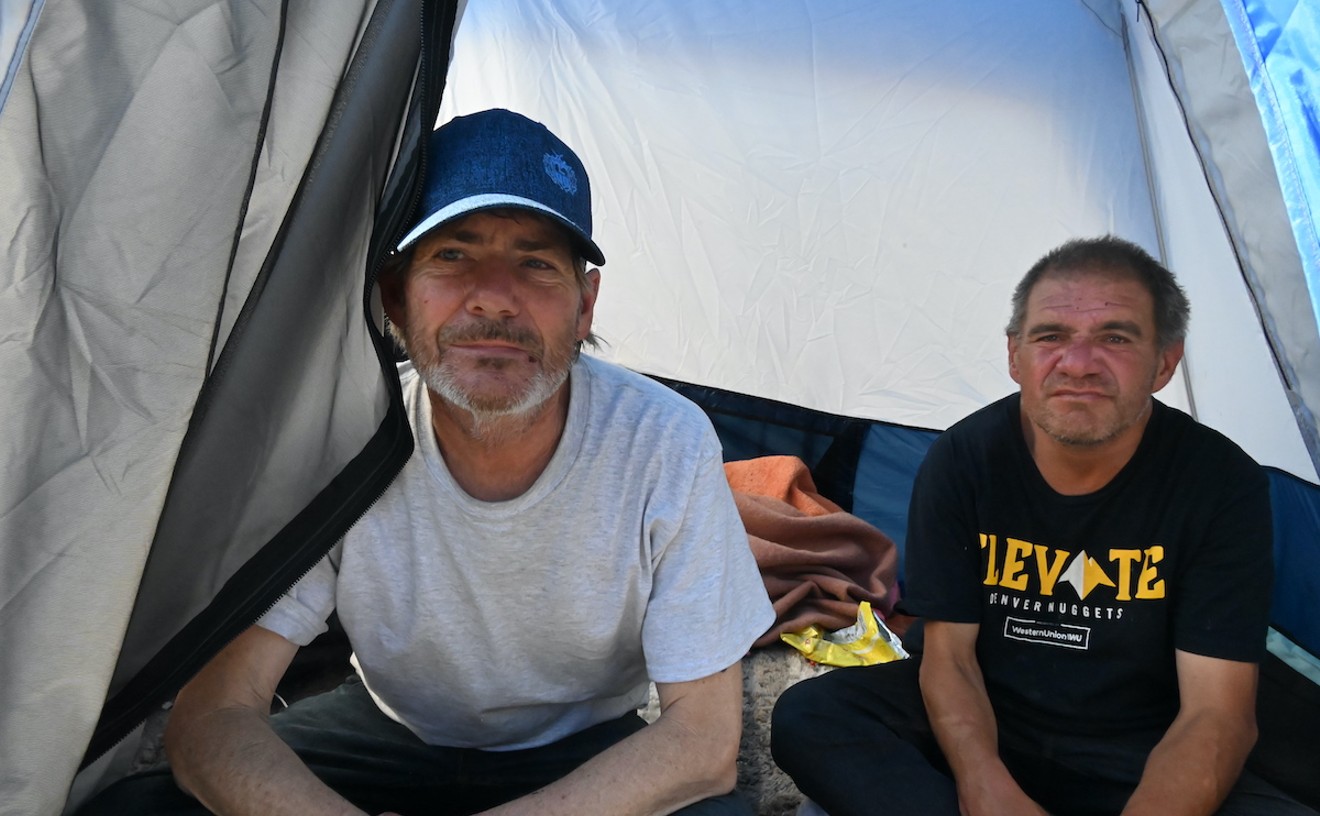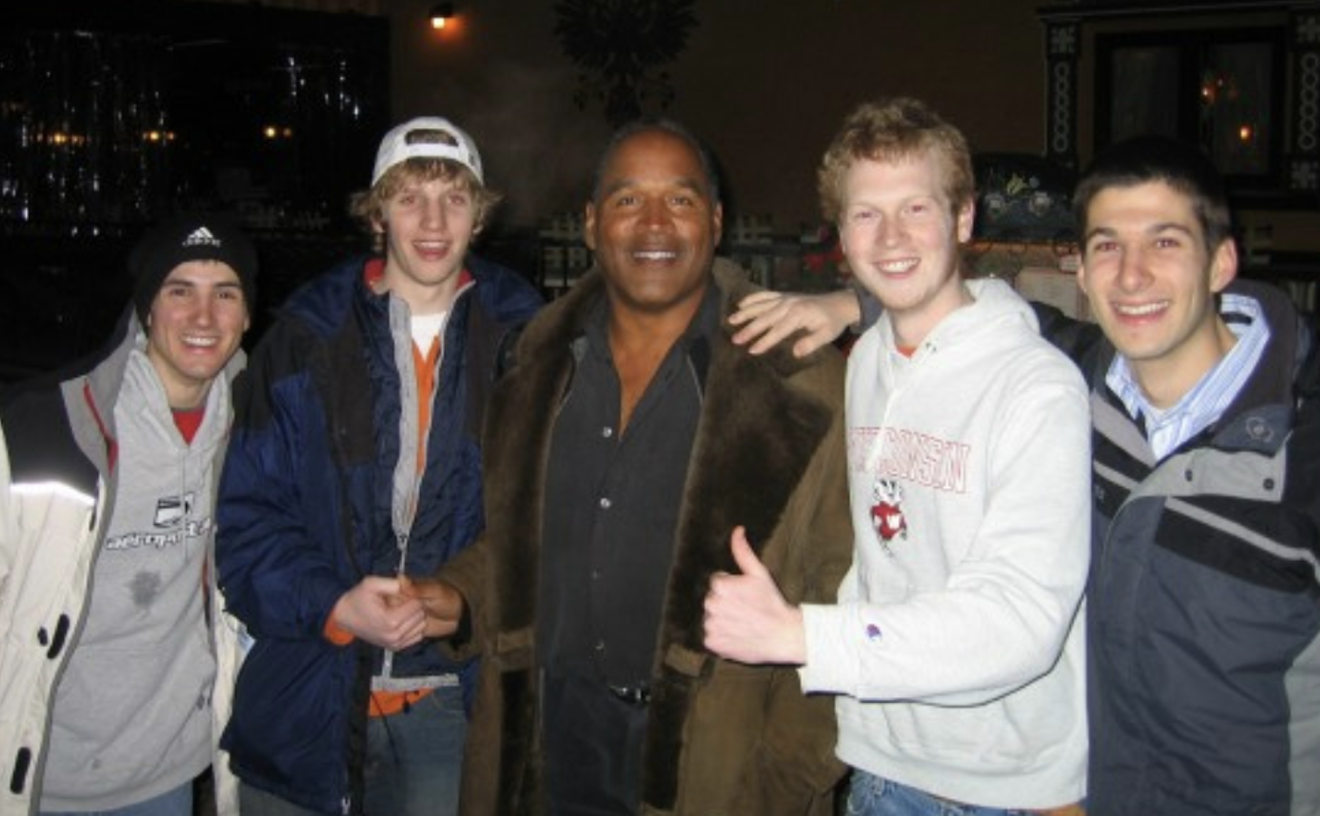Sometimes it may not feel like it, but much progress has been made in the fight for women's rights. Take birth control. It's hard to imagine now, but a hundred years ago, it was illegal to even tell someone about it, much less try to practice it.
A pivotal contributor to the sea change has undoubtedly been Planned Parenthood, a nonprofit that provides free or low-cost reproductive health-care services to millions of Americans every year. The Rocky Mountain chapter is celebrating its 100th anniversary this year.
We spoke with Planned Parenthood of the Rocky Mountains CEO and president Vicki Cowart about the long- and short-term goals of the local chapter, last year's shooting in Colorado Springs that left three people at a clinic dead, and how Planned Parenthood is de-stigmatizing abortion.
Westword: How have the goals of Planned Parenthood of the Rocky Mountains changed over the last hundred years?
Vicki Cowart: In 1916, birth control wasn't legal. You could be thrown in jail for even telling people about it. And Planned Parenthood was very instrumental in inventing the birth-control pill. Not only did we do a lot of providing information about the more traditional barrier methods, but we actually got the birth-control pill invented and widely available to people. And now, today, it's free to women across the country. About 56 million women have access to free birth control because they're either insured or on Medicaid, which came about with the Affordable Care Act. So that's huge.
We've also done a lot of work rallying, legislating and lobbying to legalize and furthermore de-stigmatize abortion. One in three women will have an abortion at some point in their life; it's a very common procedure. And Planned Parenthood has been right there, every step of the way.
We're also very much at the forefront of widespread, comprehensive sex education. A hundred years ago, sex education was practically non-existent. Most folks get some kind of sex ed at some point in their lives. And in Colorado, we've seen a wonderful reduction in teen pregnancy. Planned Parenthood has been an integral partner – really, a mover and shaker – in the idea of giving women control of their lives and empowering all people to own their sexual well-being.
How – if it has at all – has last year's shooting at the Colorado Springs Planned Parenthood changed Planned Parenthood of the Rocky Mountains?
It would be easy to become bitter or feel hurt by that, but we chose not to let that incident define us. It's part of our history, and it's a symbol of our resilience. It's not our complete story, and we're working hard to move past it. The day of the shooting, we made a very conscious decision to open our doors across our system the next day. And people across the country watched us make that decision. It was kind of a turning point. People are talking, and people are standing up. A whole series of court findings came after that that were in favor of women's access. If anything, it's made us prouder and more determined and put us more in touch with our patients.
It almost seems that within certain circles, Planned Parenthood suffers from a messaging problem. People misinterpret the intent of Planned Parenthood or exaggerate a certain aspect of it. What are you all doing to change the conversation?
I think the most important thing we do is open our doors every day and see hundreds of thousands of people and provide them with full reproductive health care and complete sex education. Across the nation, we see about three million people a year. We also recognize that even though one in five women visits Planned Parenthood, there is still a stigma about abortion. And that's not necessarily about Planned Parenthood or abortion, it's about controlling women's bodies. We are very active participants in de-stigmatizing abortion. We believe in storytelling and encourage folks to tell their own stories. As an example, when the Supreme Court took up the Texas case that was decided just a few weeks ago [a series of bills that effectively shut down health-care centers around the state], women attorneys wrote their story about how their abortion enabled them to go to law school, enabled them to be a successful lawyer, enabled them to have a family that they wanted as a result of being able to live the life they wanted. Those stories changed the tide in that Supreme Court finding [in which the court struck down the bills]. Justices read these and commented about them.
What are the short- and long-term goals of Planned Parenthood of the Rocky Mountains?
There's a lot of work to be done, and we're just getting started. To celebrate our hundred-year anniversary, we just finished an assessment of our region looking at who's got access and who doesn't. Hundreds of thousands of young people here don't have services or complete sex ed. And there are still hundreds of thousands of people who don't have access to reproductive health care: men, transgendered people, rural communities and people of color, young women. You can't ignore the fact that something as basic to human life as reproductive health care is somehow still a political hot potato. How that can be is mystifying, but in every single election, Planned Parenthood or abortions or some of the services we provide get dragged into the political conversation. And I think that's just crazy. We still have our work cut out for us.
What's something you want people to know about Planned Parenthood?
We know how much people love Planned Parenthood, but I don't think most people know that we're a nonprofit and we are terribly dependent on contributions. We do take Medicaid and private insurance. It's a big stretch to pay all the bills with that.
[
{
"name": "Air - MediumRectangle - Inline Content - Mobile Display Size",
"component": "12017618",
"insertPoint": "2",
"requiredCountToDisplay": "2"
},{
"name": "Editor Picks",
"component": "17242653",
"insertPoint": "4",
"requiredCountToDisplay": "1"
},{
"name": "Inline Links",
"component": "18838239",
"insertPoint": "8th",
"startingPoint": 8,
"requiredCountToDisplay": "7",
"maxInsertions": 25
},{
"name": "Air - MediumRectangle - Combo - Inline Content",
"component": "17261320",
"insertPoint": "8th",
"startingPoint": 8,
"requiredCountToDisplay": "7",
"maxInsertions": 25
},{
"name": "Inline Links",
"component": "18838239",
"insertPoint": "8th",
"startingPoint": 12,
"requiredCountToDisplay": "11",
"maxInsertions": 25
},{
"name": "Air - Leaderboard Tower - Combo - Inline Content",
"component": "17261321",
"insertPoint": "8th",
"startingPoint": 12,
"requiredCountToDisplay": "11",
"maxInsertions": 25
}
]











